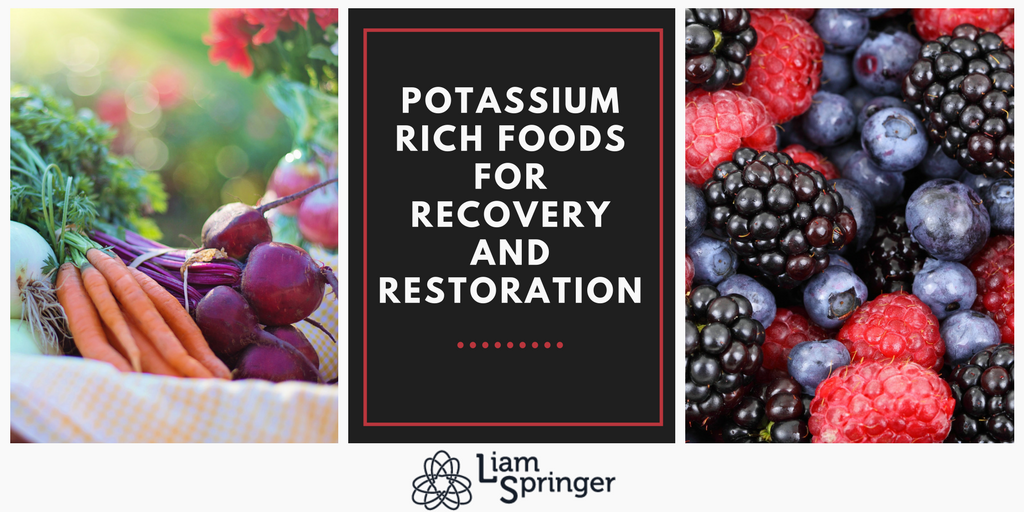
Potassium is a tremendously important mineral and electrolyte. In times of fatigue or exhaustion, potassium plays an essential role in restoring cell vitality and protecting against degenerative stress. While it is essential to restore sodium, which can be easily lost during strenuous exercise, it is also very important have a continuous intake of potassium and sugar—in order to maintain the potassium gradient that is so crucial to your body’s ability to resist challenge. Potassium rich foods have the power to enhance restoration and recovery from stressful challenges.
Fruit: The Top Recovery Food
Fruit contains significant amounts of potassium, glucose, and fructose (a.k.a. sugar). Fructose allows the liver to efficiently store glycogen and enables the rapid restoration of blood glucose during exertion, thus maintaining adequate placement of potassium and ATP within the cell. A diet containing foods that are high in potassium and also aid in the storage of glycogen will be very protective against extended periods of fatigue or exhaustion. Therefore, fruit is an excellent recovery food and it is extremely helpful in protecting your body against degenerating stress whenever you encounter intense, long-duration, or frequent challenges.
Fruit is one of the top recovery foods for athletes and anyone who encounters intense, long-duration, or frequent challenges.
Other Potassium Rich Foods to Include in Your Diet
In addition to fruit, other foods high in potassium include greens and root vegetables. When cooked, it is best if you also consume the liquids used to cook them, so that you don’t miss out on any potassium lost into the water. Soups and broths are excellent ways to ensure adequate potassium intake. In addition to being high in potassium, many roots are also rich in glucose, and some have fairly high levels of fructose (similar to fruit).
Fruit, greens, and root vegetables are potassium rich foods that help protect the body against extended periods of fatigue or exhaustion.
What About Taking a Potassium Supplement?
Compared to other minerals, potassium supplementation can be dangerous. It’s difficult to achieve an appropriate balance of potassium in the blood, as the target range is small. Too much potassium in the blood relative to the cell will reduce the energy flow into the cell and reduce vitality. The uptake and retention of potassium in the cells is regulated by the cells’ metabolic state and the presence of structured water related to the folding of proteins. For this reason, healthy magnesium balance and thyroid state are critical before any potassium supplementation is considered. And even then, the dosage should be adjusted very slowly and evenly.
For more insights on the latest topics in health and nutrition, sign up for my monthly newsletter. Want to try a new exercise method that’s great for pain management, strength and stability, and flexibility? Go to BTMAStudios.com to learn about the ELDOATM method, or go to Yoga Source to sign up for classes now.






